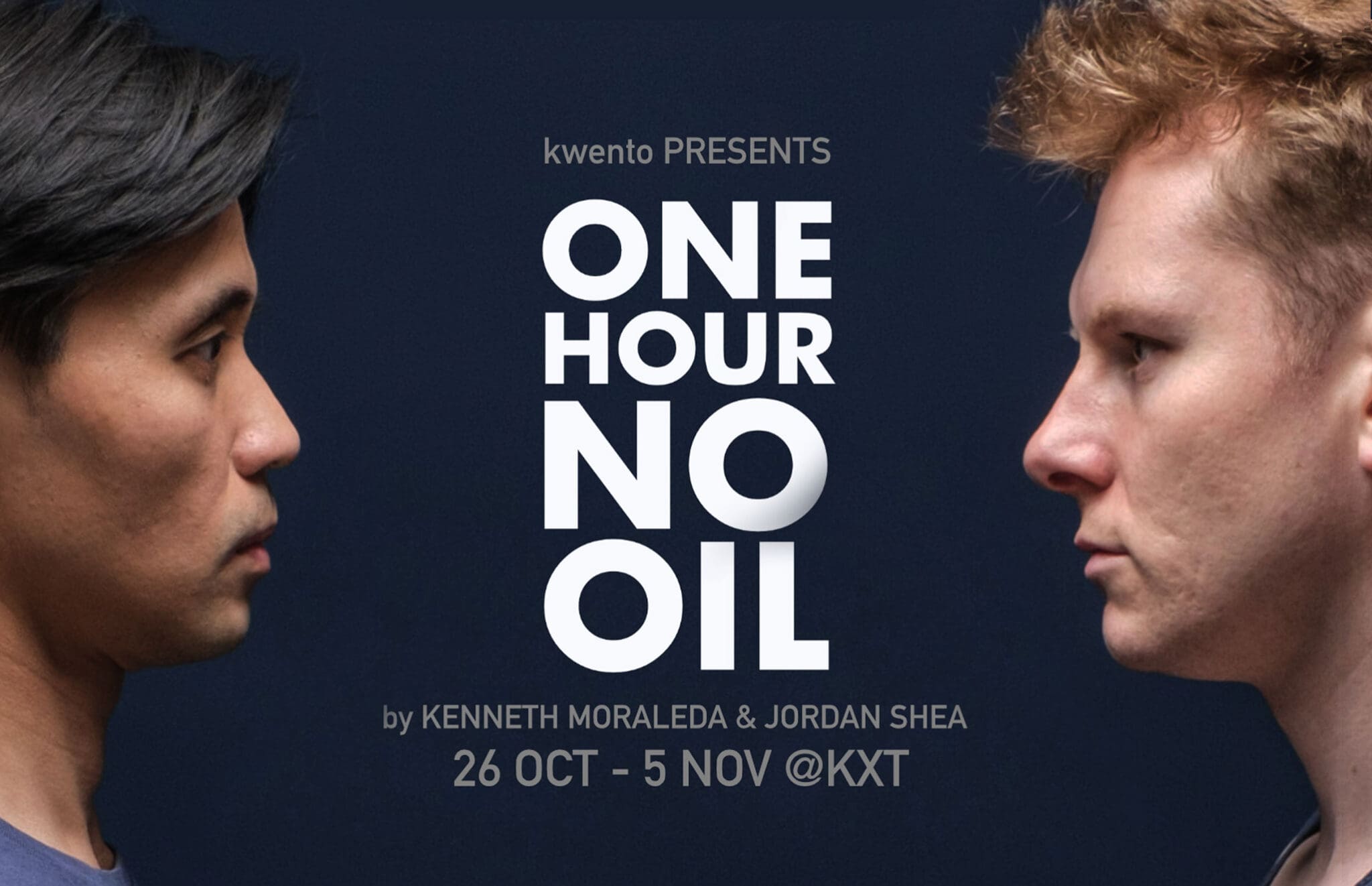Sydney’s KXT Theatre has a masks-on admissions rule, but everything was on show in its brave and thought-provoking new production, One Hour No Oil. Written more than two years ago, the show was co-produced and co-written by Kenneth Moraleda and Jordan Shea, directed by Moraleda, was scheduled for production at Belvoir in 2020 until COVID suspended it from running. However, it has now finally found an audience.
We firstly meet Bhing (John Gomez Goodway), a Filipino man who is juggling a young son while also training to become a teacher and working at a masseuse in Perth. Through chatty and hilarious monologues recounting his recent past, Bhing emerges organically and casually. This is abruptly disrupted by the entrance of Scott (Shaw Cameron), demanding a massage in his broad Australian accent and crashing the quiet and light-hearted mood established by Goodway at the start of the play. What unfolds, however, is a poignant story of conflict and an unwillingness to compromise between the two men, their terse relationship inciting the drama that drives the play’s bulk.
Both actors are captivating to watch. Cameron’s character stands out the most, showcasing emotions with incredible intensity without ever slipping into overacting. On the other hand, Goodway’s subtle performance earlier in the play is rendered significant by the traumatic events that follow, highlighting Bhing’s use of language. The sounds of each of the character’s speech, their differences and their similarities, forms a brilliant metaphor; of cultural difference, of openness, of modern Australia.
Impressive sound design binds the whole play together. The musical accompaniment and characterisation, performed by actor and composer Alec Steedman, embellishes the play with colour, weaving the rich sound of strings into Zac Saric’s more contemporary electronic sound design. Paired with Saint Clair’s expressive lighting design, which douses the play’s climactic scenes in orange and violet, this production is highly immersive, a fact made more incredible by the relative simplicity of its performance space.
One Hour No Oil’s use of the stage is notable; although the backdrop comprises only wooden slats and a table, we soon find that most of the play will take place between the two banks of audience seating. This inventiveness is further testament to the actors’ capabilities; no table was necessary for the massage scenes, nor much touching.
In some ways, One Hour No Oil is reminiscent of a Fauvist painting; the subject is obvious, but added distortions and impressions complicate it beautifully.
Further, the show’s dialogue is generally very well characterised, especially Goodway’s character who comes across as clear cut and natural. However, Cameron’s character is once or twice marred by the kind of language it is hard to imagine someone like him ever saying. However, there is no discounting these parts’ significance for the play’s themes. The refrain “A flash of white light!” is critical to the journey of Cameron’s character, and serves as a symbolic tie with the sonic elements of the play in a later scene involving poker machines. Yet as Scott and Bhing grow closer later in the play, their feelings of compassion, of anger, of desperation shine through the dialogue, as the audience witnesses the breaking down of Cameron’s character. You will probably leave One Hour No Oil with a twist in your chest. Its themes may seem unclear at first, but their final development brings to a head the shattering of its characters’ psyches and established ways of life. One Hour No Oil is a play about many things, from the mining boom and bust, to memories of family long gone, to temptation and ambition. But above all, it is a play about communication — how we see each other, how we feel for each other. It asks the question: can we ever expect things to end well?





